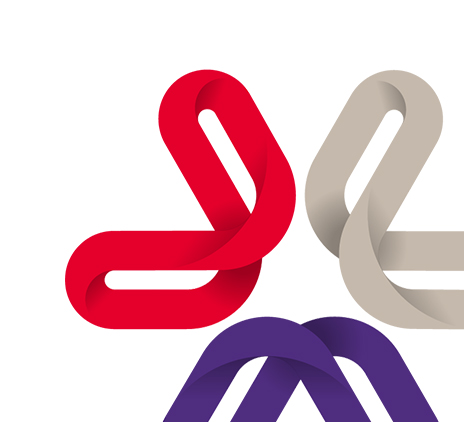-
Business consulting
Our business consulting services can help you improve your operational performance and productivity, adding value throughout your growth life cycle.
-
Business risk services
We can help you identify, understand and manage potential risks to safeguard your business and comply with regulatory requirements.
-
Forensic services
At Grant Thornton, we have a wealth of knowledge in forensic services and can support you with issues such as dispute resolution, fraud and insurance claims.
-
Recovery & reorganisation
We provide a wide range of services to recovery and reorganisation professionals, companies and their stakeholders.
-
Transactional advisory services
We can support you throughout the transaction process – helping achieve the best possible outcome at the point of the transaction and in the longer term.
-
IFRS
At Grant Thornton, our IFRS advisers can help you navigate the complexity of financial reporting.
-
Audit quality monitoring
Having a robust process of quality control is one of the most effective ways to guarantee we deliver high-quality services to our clients.
-
Global audit technology
We apply our global audit methodology through an integrated set of software tools known as the Voyager suite.
-
Corporate and business tax
Our trusted teams can prepare corporate tax files and ruling requests, support you with deferrals, accounting procedures and legitimate tax benefits.
-
Direct international tax
Our teams have in-depth knowledge of the relationship between domestic and international tax laws.
-
Global mobility services
Through our global organisation of member firms, we support both companies and individuals, providing insightful solutions to minimise the tax burden for both parties.
-
Indirect international tax
Indirect international tax
-
Private client services
Our solutions include dealing with emigration and tax mitigation on the income and capital growth of overseas assets.
-
Transfer pricing
The laws surrounding transfer pricing are becoming ever more complex, as tax affairs of multinational companies are facing scrutiny from media, regulators and the public
-
Bookkeeping & financial accounting
Effective bookkeeping and financial accounting are essential to the success of forward-thinking organisations. To get the optimum benefit from this part of your business, you'll need an experienced team behind you.
-
Business process outsourcing
Outsourcing your operations and specific business functions to Grant Thornton can not only cut costs, but also bring new insights and experience to your business.
-
Compilation of financial statements
Running a transparent and trusted business means keeping shareholders, owners, management and other important stakeholders informed about key developments in your organisation.
-
Human resources consulting
Depending on your needs, we can either manage your entire HR process or individual aspects of your strategy.
-
Payroll
Payroll and, in addition, personnel administration are the biggest and most time-consuming challenges facing expanding organisations. Grant Thornton’s outsourcing teams can manage these commitments on your behalf, allowing you to focus on what you do best – growing your business.
-
Tax compliance
Tax is likely to have an impact on almost every business decision you make. Whatever your business’s specific needs, we respond quickly and devise solutions tailored to you.
by Margaret Ndung'u, Human Resource Solutions Lead at Grant Thornton
New methods
The methods used to conduct business and the skills required by organizations to succeed have radically transformed as a result of new technologies, demographic shifts, the mix of generations in the workplace, and most recently, the impact of Covid-19.
Like disruptive technologies, Covid-19 has swept away the habitual practices and systems in the workplace and increased reliance on Technology and Artificial Intelligence.
The most affected facet of the business is Human Capital. The need for change and adaptation necessitates upskilling and reskilling of employees on both Technical Skills (use of the new systems and applications) and Soft Skills (change management, teamwork, and time management).
Human Resource Management approaches call for businesses to review their strategic plans to include post-pandemic policies that will integrate resilience in the processes. Some policies such as monitoring working hours as well as employee engagement are starting points.
Hybrid model
The leadership and culture of the organization have been affected by the introduction of the hybrid model which is the new normal – a mix of working from home and the office. Leaders need to incorporate measures that will transition the organization into their preferred model and normalize the organizational culture that is now at the mercy of effective communication and collaboration via online platforms.
Productivity is at an all-time high due to the flexibility of the employees in maximizing their prime working time. Ont the other hand, what are the organizations doing about the interpersonal skills and team building for the employees?
Case study
Talent Acquisition and Retention has been greatly affected. Gone are the days we would print interview packs and book reservations for interviews. The candidate calls asking for directions and apologizing for slight delays are a thing of the past. Interviews have become more efficient as resources such as time and money are saved. Online interviews are the new normal.
The opportunity cost is the loss of the human touch in the session. The online sessions may also not allow one to detect the body language as effectively as the physical interviews. However, the geographical limitations are no longer there. Candidates are logging in for interviews from all over the world.
Candidate placement is effective as they are not necessarily required to make drastic relocation decisions as some organizations have transitioned to a full-time work from home policy based on their industry. For instance, an ICT support technician can manage regional offices without stepping into a specific location.
This is the Future of Work.
Get in touch with us on info@ke.gt.com

